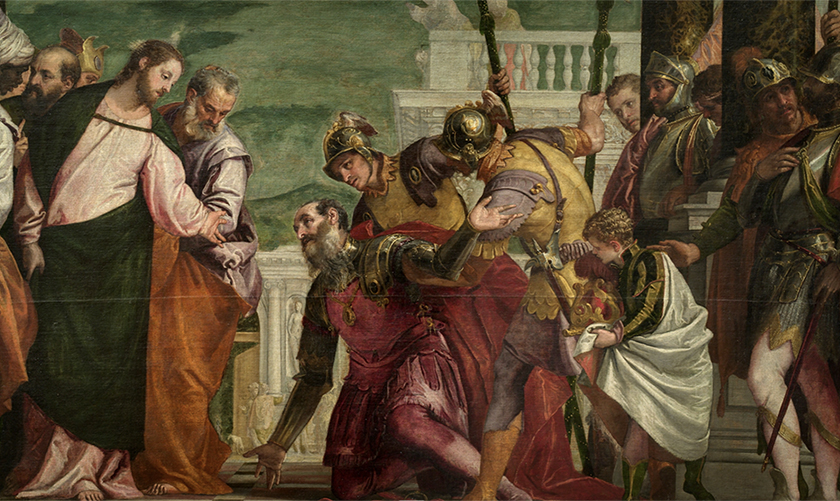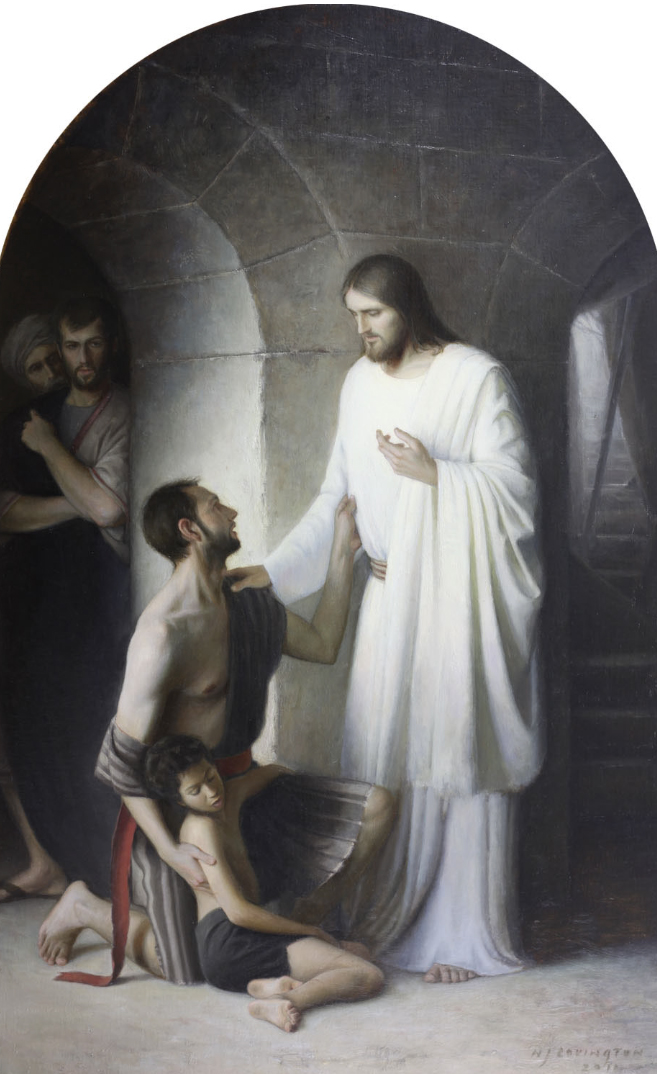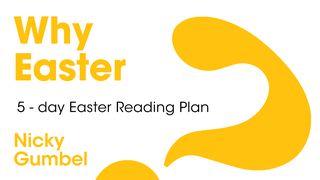Last Words: A Lenten Meditation on the Final Sayings of Christ, Week 3Sýnishorn

Prayers of the Heart

Christ and the Centurion, Paolo Veronese, 1575. Oil in canvas, 140.65 × 206.07 cm. The Nelson-Atkins Museum of Art, Kansas City, Missouri. Public Domain.

Help Thou Mine Unbelief, Niki J. Covington, 2016. Oil on canvas.

The Parable of the Pharisee and the Publican (detail from the painting), Barent Fabritius, 1661. 93 x 285 cm, Oil on canvas. Rijksmuseum, Amsterdam, Netherlands. Public Domain.
“Mercy” from the album The Applause of Heaven. Composed by Nathan DiGesare and Dan Scott. Performed by The Singing Churchmen and Churchwomen of Oklahoma.
Poetry:
“Morning Hymn”
by Charles Wesley
Christ, whose glory fills the skies,
Christ, the true, the only light,
Sun of Righteousness, arise,
Triumph o’er the shades of night:
Day-spring from on high, be near:
Day-star, in my heart appear.
Dark and cheerless is the morn
Unaccompanied by thee,
Joyless is the day’s return,
Till thy mercy’s beams I see;
Till thy inward light impart,
Glad my eyes, and warm my heart.
Visit then this soul of mine,
Pierce the gloom of sin, and grief,
Fill me, Radiancy Divine,
Scatter all my unbelief,
More and more thyself display,
Shining to the perfect day.
PRAYERS OF THE HEART
Scripture #1: Matthew 8:8
“Lord, I am not worthy that You should come under my roof. But only speak a word, and my [soul] will be healed.”
Scripture #2: Mark 9:24
“Lord, I believe; help my unbelief!”
Scripture #3: Luke 18:13
'[Lord Jesus Christ, Son of the Living God], be merciful to me a sinner!’
What do you notice about these three exposed prayers of the heart? If you’re willing, review the scripture passages once more. What do you notice?
I’m immediately struck by two things: First, is the way these desperate people are talking with God. There’s a relational interaction happening. They aren’t talking at God. They aren’t talking to God. They are raw, honest, and desperate in conversation with the Lord. They are vulnerably expectant of an active response.
From a communication perspective, talking at someone is a very one-sided way of communicating. Have you ever been on the receiving end of that? Someone has talked to you but didn’t expect or invite a response? It’s a monologue with a removed audience.
Talking to someone is more neutral. There could be relationship there…or not. It’s unclear if there’s mutual engagement and deep connection.
Talking with someone involves a back-and-forth conversation. With a rhythm of listening and responding; there’s an inclusive, interactive togetherness.
The second thing I notice is an honest clarity about authority. Consider the way each person cries out to the Lord. In the first passage (Matthew 8:5-13), we see a Roman Centurion fully aware and surrendered to the layered authority of Jesus. Deeply familiar with power, this commanding Roman humbled himself under the command of Jesus, believing Christ’s word was powerful enough for even deathly sickness to obey him.
For the parent with a demon possessed son (Mark 9:24), we see a strikingly honest and deeply desperate dad thirsty for the authority of Jesus over his family. In verse 21, the broken-hearted father weakly says, “If you can do anything, take pity on us and help us.” I love how Jesus answers. He helped the man find a hidden hope underneath a crushed heart. Jesus says, “If you can? Everything is possible for one who believes” (verse 23). The man replied with admirable vulnerability, “I do believe; help me overcome my unbelief!” Talk about knowing ourselves and the One with whom we’re in conversation!
In the final passage (Luke 18:13), Jesus walks us through the parable of a tax collector who had stopped pretending his work was an admirable position. He wasn’t trying to excuse his choices or behavior. He was overcome with the need for the Lord’s forgiveness. Unlike a nearby religious leader who saw everything through the filter of his own pride, this tax collector’s raw plea for mercy takes center stage in the story. Pride, and even shame, cause us to curl inward, making ourselves the focus. The tax collector turned his focus outward to the One who had authority to offer complete forgiveness, rather than being consumed with his own sinful actions.
What kind of help do you need today? Do you desire assurance of God’s faithfulness even as yours may be wavering? No need to be ashamed. Ask him for help. Do you need a reminder of his mercy, which is far more powerful than any burden of sin you may be carrying. Don’t be afraid. Turn to him.
Imagine for a moment you are in the shoes of one of these three. What would your heart’s cry be? My friend, God hears you, and he is with you. As Charles Wesley so aptly penned, our Lord is able to “pierce the gloom of sin and grief” and fill us “with radiance divine.”
Prayer:
Lord Jesus, son of the living God, have mercy on us, as sinners. Savior, we believe, help us with our unbelief. Lord, speak your healing over us, over our families. For we trust in your complete authority. Father, where we are weak, exhausted, lonely, and hopeless, send your Holy Spirit to nourish us. You are the Redeemer and the Restorer. Merciful God, we reach out to you, vulnerably expectant of your active response.
Amen.
Dr. Arianna Molloy
Associate Professor of Organizational Communication
Division of Communication
School of Fine Arts & Communication
Biola University
Ritningin
About this Plan

The Lent Project is an initiative of Biola University's Center for Christianity, Culture and the Arts. Each daily devotion includes a portion of Scripture, a devotional, a prayer, a work of visual art or a video, a piece of music, and a poem plus brief commentaries on the artworks and artists. The Seven Last Words of Christ refers to the seven short phrases uttered by Jesus on the cross, as gathered from the four Christian gospels. This devotional project connects word, image, voice and song into daily meditations on these words.
More








